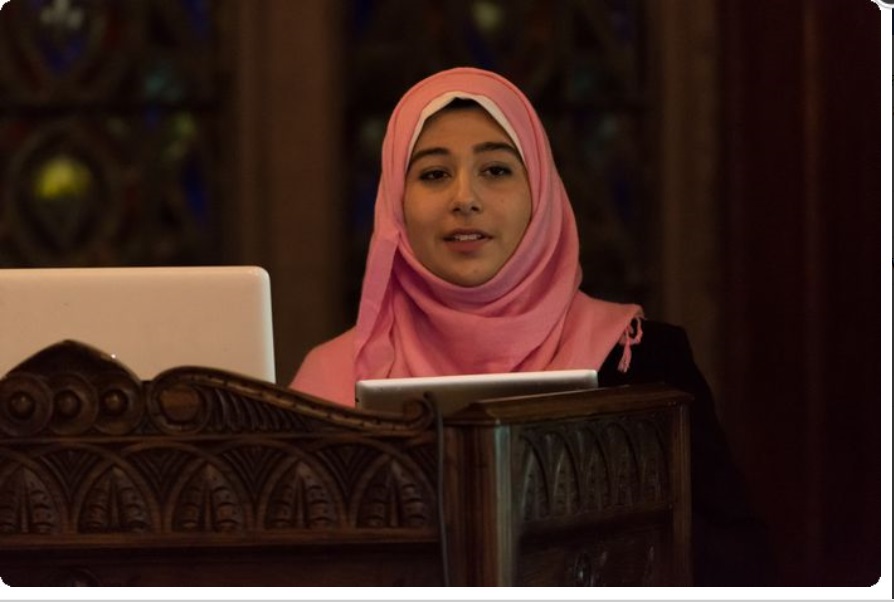
RNA – Meet Soaad Elbahwati, a junior at The Hill School in Pottstown, Pennsylvania, who is a practicing Muslim. At the age of 16, this intelligent young woman has already faced the backlash for her Islamic culture.
Elbahwati remembers that two days after she had begun wearing a hijab in proclamation of her culture and religion, she had been called slurs and was told to “go back where (she) came from.”
“Right now, I feel vulnerable,” Soaad said, “that at any moment anything could happen to Muslims and our lives could be changed drastically.”
Because the majority of media coverage regarding Muslims explores only the radicalization of the religion, many people do not understand exactly what the religion entails.
One of the largest misconceptions about Islam is its teachings from the Quran, the Muslims’ book of divine guidance and scripture compiled by the Prophet Muhammad. Many people focus on the radical views of the Quran and neglect to acknowledge the central purpose of its writings, which is the importance of prayer, good deeds and the belief in Allah.
“I feel if people knew about the life of the Prophet Muhammad and the teachings of Islam, that they would agree with the basic teachings of love, kindness, charity, equality, education, humbleness and graciousness that makes us into responsible citizens,” Soaad said.
“I believe that you don’t need to be Muslim to appreciate the lessons and values in the Quran,” she said.
In light of the multitude of horrific terrorist attacks that ISIL has taken responsibility for, and their radical interpretations of “Jihad,” an Islamic concept that roughly translates to “striving, struggling, preserving and applying oneself,” many people have made an association between the extremist group and all other practicing Muslims.
An important attribute to consider when making associations as potentially dangerous as these is to pay attention to context. Without the complete context of any situation, there is no direction to follow when interpreting something. This also promotes the importance of becoming educated on a subject before arguing any standpoint.
Especially with the heavy concentration on the religion of Islam within the current presidential elections, these negative and detrimental views of their beliefs are being promoted by candidates such as Republican businessman Donald Trump.
“To hear the rhetoric go back and forth about how Muslims bring only negative things to society makes me feel less than human,” Soaad said. “I feel like I’m not a person when I am told my people should wear IDs.”
For a young American woman of this intellectual calibre to be so harshly discriminated against, whether directly or indirectly, shows the absence of maturity and the lack of attention to context in the United States.
It is clear that Muslim people see their religion being distorted by convoluted misconceptions and streamlined associations between Islam and those who practice radical interpretations of the Quran.
R111/112/E